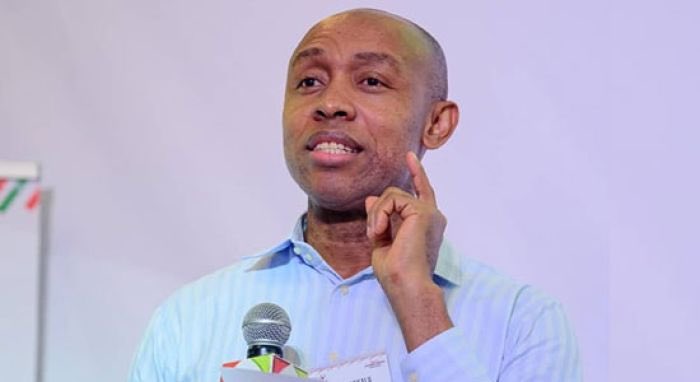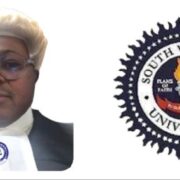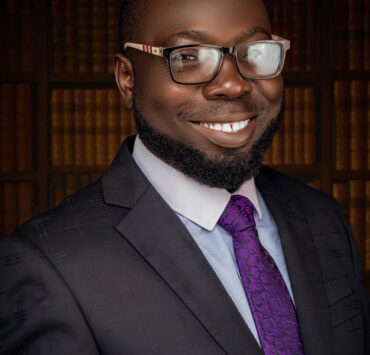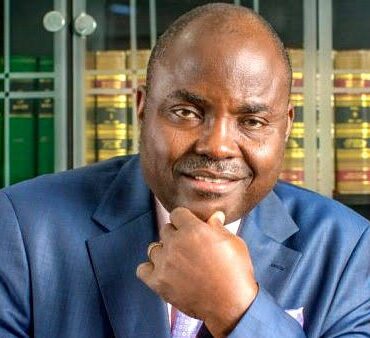A Court for Kangaroos, By Chidi Anselm Odinkalu

Lawyard is a legal media and services platform that provides…
“Because judges are part of government, acting on our behalf, we are entitled to require them to abandon their priesthood and to present their activities for assessment by laymen.” David Pannick, KC, Judges, p. 17 (1987)
The Guardian’s obituary on Bernard Levin, the celebrated Times columnist who died in 2004 after a long battle with Alzheimer’s disease, described him as “a passionate and eclectic journalist with a legendary capacity for work, whose career made him a host of friends – and enemies.” Among these enemies, few were as determined as the legal profession.
David Pannick, KC, recalls that Mr. Levin’s settled view was that “the legal profession had an infinite capacity for deluding itself.” He had good reason. When Rayner Goddard retired as Lord Chief Justice in 1958, Bernard Levin’s evisceration of his judicial record inspired “a clandestine meeting at which the higher judiciary considered whether the uppity columnist might be done for criminal libel.” The idea was eventually dropped.
At Lord Goddard’s death in May 1971, leading members of the legal profession lined up to exalt his memory. In one of his less durable predictions, Lord Denning infamously foresaw that Goddard would “go down in our annals as one of the greatest Chief Justices.” Bernard Levin differed, describing Lord Goddard’s tenure in the office of Lord Chief Justice as a “calamity” and his conduct on the bench as “unjudicial.”
For his gumption, Mr. Levin suffered condemnation from the legal profession and “after the 1971 piece appeared Levin’s application to join the Garrick (Club) was blackballed, supposedly a sort of revenge.” The legal profession provided a sizeable chunk of the membership of the club.
In the quarter century after Goddard’s death, the public came around to Mr. Levin’s viewpoint. Lord Goddard’s clerk, Arthur Harris, would disclose that he always had “to take a spare pair of the standard striped trousers to court on sentencing days” because “when condemning a youth to be flogged or hanged, Goddard always ejaculated.”
The judiciary also had reason to revise its views. In 1998, the Court of Appeal set aside his 1952 conviction of Derek Bentley (who was subsequently hanged in 1953) because the language of his jury instructions were “not that of a judge but of an advocate.”
In Nigeria, the legal profession claims to be descended from England. Its inheritance from its colonial progenitors appear, however, to be a peculiarly tropicalized malignancy that condemns it to a preoccupation with navel gazing. In a season in which even senior-most judges of the highest courts of the land loudly lament the desecration of the values of an independent judiciary, the Nigerian Bar Association (NBA) seems bent on proving that the only courts of any worth are those created for Kangaroos.
Pauline Tallen’s is a defining case study. To be sure, Ms. Tallen is no ordinary citizen as such. She is a senior politician and a reasonably successful one. In 20 years between 1999 and 2019, she was a two-time Minister in Nigeria’s federal cabinet. In 2007, she was elected deputy governor of Plateau State, becoming the first woman to occupy that office in any of the 19 states of Northern Nigeria.
Sometime around 15 October, 2022, Ms. Tallen was a prized guest at the reunion of the Federal Government Girls College Bida. The event took place in Abuja. At the time, she was also the Minister for Women Affairs and Social Development in the cabinet of President Muhammadu Buhari.
On the margins of that encounter, Ms. Tallen encountered the media to whom she described a judgment of the Federal High Court as a “Kangaroo judgment”, opining that it “should be rejected by all well-meaning Nigerians.”
At the time, Yakubu Maikyau, a Senior Advocate of Nigeria (SAN) was less than two months into his tenure as president of the Nigerian Bar Association (NBA), a non-governmental cartel that exists to protect the narrow vocational interests of lawyers in the country under the rather overblown motto of “promoting the rule of law.” For Mr. Maikyau, Ms. Tallen made an inviting burnt offering for his vocational shrine.
On 14 December, 2022, two months after she made the statement, Mr. Maikyau’s NBA sued Ms. Tallen before the Federal High Court in Abuja, claiming that her statement was “unconstitutional, careless, reckless, disparaging, a call to disobey the judgment of court, and therefore contemptuous of the Federal High Court of Nigeria.”
This took rhetorical hyperventilation to a whole new level. Ms. Tallen did not claim to be exercising any ministerial powers when she spoke on 15 October 2022. She voiced her opinion, which did not bind anyone, including indeed herself. Even if what she said was careless or reckless in the opinion of the NBA leadership, there was absolutely nothing unconstitutional about it.
But, an NBA leadership inebriated with an overwhelming sense of its own significance, would not be deterred by good sense. They asked the court to find Ms. Tallen had breached her oath of office to defend the constitution and, by virtue of that, to declare her unfit to hold public office. The NBA also asked the court to require her to purge “herself of the ignoble conduct” by publishing a retraction of her statement in a full page of the Guardian and Punch newspapers or, failing that, to be banned from holding public office.
This case went before Peter Kekemeke, a judge of the Federal High Court, who, on 18 December 2023, granted the NBA all that they asked for, including a “perpetual injunction restraining” Ms. Tallen “from holding any public office in Nigeria by reason of her conduct complained of.”
Writing in 1980 for the Supreme Court of Nigeria in Raimi Edun v. Odan Community, Justice Anthony Aniagolu emphasised that “the moment a court ceases to do justice in accordance with the law and procedure laid down for it, it ceases to be a regular court to become a kangaroo court.” With this case between the NBA vs Pauline Tallen, it is amazing how a judgment could be so deliberately calibrated to damage the good name of Kangaroos.
To begin with, on its terms, the NBA charged Ms. Tallen with contempt of the Federal High Court. This is a crime. Of course, a court has the powers to protect its own authority against acts that disparage it. If the act is done within its precincts, the court can do so summarily. That was not the case here. If the disparagement occurs outside the precincts of the court, then the power to protect the authority of the court does not lie in an NGO like the NBA. All that such an NGO can do is report to the Attorney-General of the territory, who has the power to prosecute the erring person.
In this case, the NBA took it upon itself to topple the office of the Attorney-General of the Federation and arrogate the powers of that office to itself. As a matter of law, the NBA lacked the standing to invoke the jurisdiction of the court or seek the remedies it did. Rather than direct the NBA to what it should do, the judge enabled their malignant misbehaviour.
But he did not stop there. He turned civil proceedings into a criminal one, and then sentenced Ms. Tallen to criminal forfeiture of the most basic of her civic rights on the basis of civil standard of proof and, all of this at the instance of a self-regarding cartel.
It is impossible to speak too lowly of this judgment, of the applicants who initiated it or of the judge who entertained it. The only surprise is that a case which was supposed to have been instituted to show how a Nigerian court is not of the kingdom of Kangaroos, actually has ended up demonstrating precisely the opposite.
A lawyer and a teacher, Odinkalu can be reached at chidi.odinkalu@tufts.edu
Lawyard is a legal media and services platform that provides enlightenment and access to legal services to members of the public (individuals and businesses) while also availing lawyers of needed information on new trends and resources in various areas of practice.













